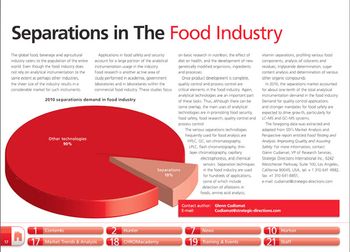
The Column
The health benefits of barley grain as a source of dietary fibre are well known. In the case of barley, as with most cereals, the phenolic compounds are concentrated in the bran, which until recently was removed during the milling process. Now food researchers are investigating the possibility of producing barley flours naturally enriched in bioactive compounds and have shown that the separation of different fractions of whole barley by pearling have resulted in the outermost fractions yielding the highest phenolic content.





